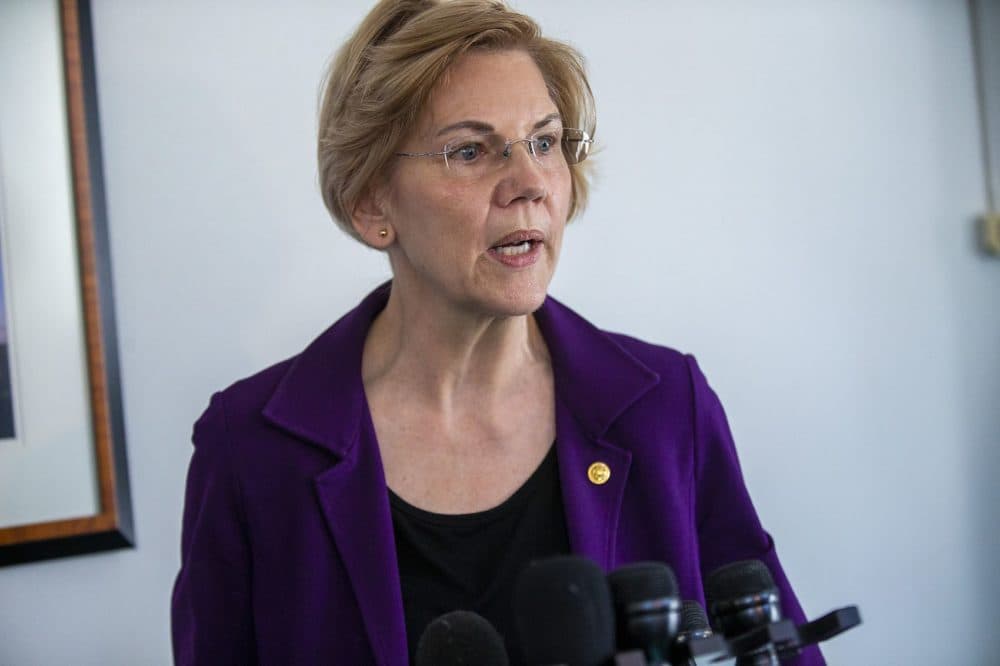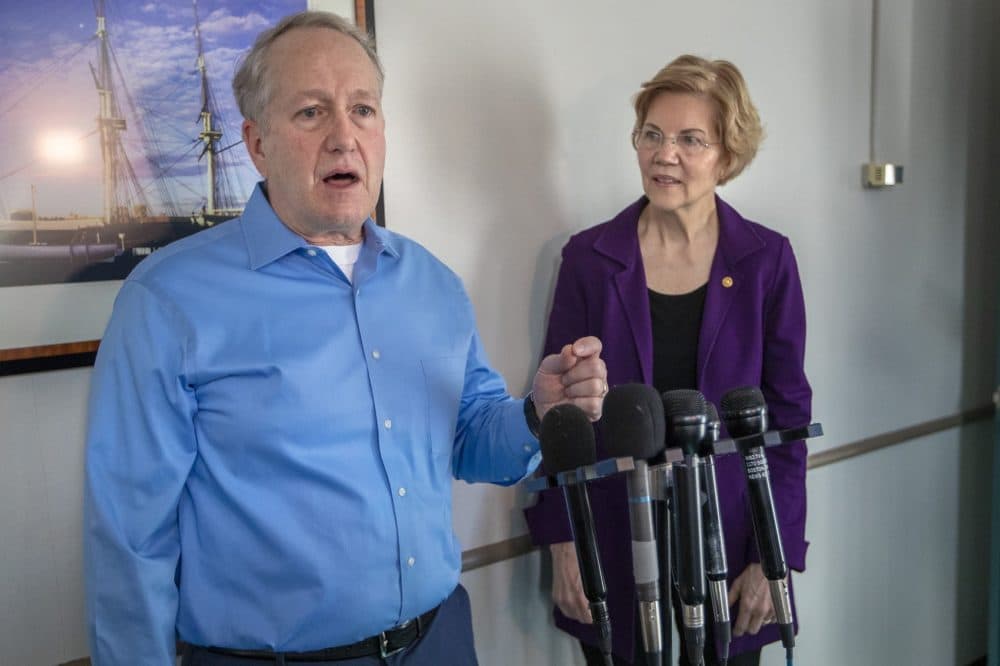Advertisement
Elizabeth Warren Meets With Federal Workers Returning To Jobs After Shutdown

Sen. Elizabeth Warren met with federal workers in Boston on Monday, the first day back to work for many federal employees affected by the nation's longest partial government shutdown.
As the threat of another shutdown looms, the Massachusetts Democrat and likely 2020 presidential candidate told the workers inside the John F. Kennedy Federal Building that she has a straightforward message to fellow lawmakers and President Trump: Keep the government open and protect federal employees.
"Federal workers are not pawns in a political game," Warren said. "They should be able to do their jobs, and they should get paid to do their jobs."
Those she met with welcomed the message. Steven Calder, an inspector for the Environmental Protection Agency, said while many of his colleagues feel relieved to be back at work, others are angry.
"They're mad that they were put in that position,” Calder told reporters at the meeting with Warren.

Without paychecks, Calder said he relied on a short-term zero-interest loan from his federal credit union to carry him through the shutdown. Like most federal employees, he will get backpay, but federal contractors will not.
Many of the roughly 800,000 workers furloughed during the shutdown struggled to keep up with mortgages, medical bills and daily expenses.
After 35 days, the shutdown officially ended Friday when President Trump agreed to reopen the government for three weeks without securing funds for his southern border wall.
To avoid future financial stress in another shutdown, Calder and other government employees are now calling for protections from being pushed off the job because of policy disagreements between politicians.
“The government needs to make sure that federal employees aren't put back out on the street,” Calder said. “It just isn't right."
Sen. Warren said lawmakers have started to discuss ways to reduce the likelihood of future government shutdowns, such as a mechanism that would automatically trigger a continuing resolution during difficult negotiations.
Advertisement
"Others are talking about Congress not getting paid if there's a shutdown," Warren said. "I'm open to talking about all of those and any other ideas."
The nonpartisan Congressional Budget Office estimated the cost of the partial shutdown at about $3 billion.
It’s part of the cost of divided government, and there’s no guarantee the price won’t keep going up. Trump has warned that without a deal on border security, the government could shut down again as early as Feb. 15.
This segment aired on January 28, 2019.
